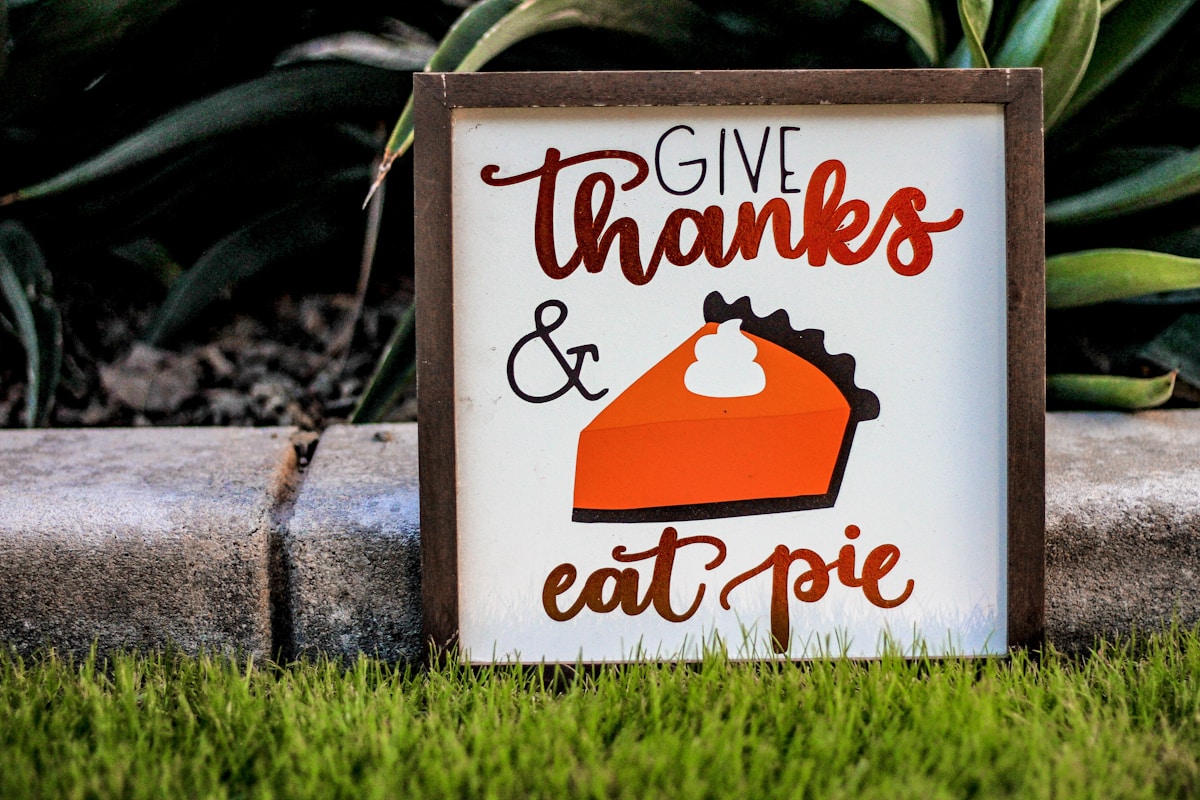gratitude in the time of corona

It’s Thanksgiving today, a holiday that symbolizes nothing but togetherness. But this year things are going to be drastically different. Our family feasts will most likely be arranged online, our celebrations will undergo a few adjustments, and many cherished traditions will sadly be off-limits this year.
Thanksgiving in the new normal might look different, but we can’t let that dampen our spirits. I don’t know you personally, but considering all the events that happened this year, there’s a good chance that you may have mixed feelings and even find it difficult to say you’re thankful for something or someone. But this makes expressing gratitude even more important and more essential than ever. It’s crucial that we turn our attention from the things that we don’t have to the ones we do.
No doubt this has been a stressful and uncertain year with most of us living in lockdowns for extended periods of time. Our work and personal lives have been compromised, the economy, both on national and global scale, has suffered, and a great deal of unrest has come our way. Pandemic stress has posed a great threat to our mental health — there has been a significant rise in anxiety and depression among masses, and many people working from home have felt lonely, isolated and unappreciated. However, we can’t let this global health crisis steal our joy and stop us from counting our blessings. No matter how dire the circumstances, we can still find the blessings and the silver linings to celebrate a peaceful, joyful, and grateful Thanksgiving.
Living in a constant state of uncertainty, where everything seems hazy and where it gets easier to imagine the worst-case scenario again and again, can negatively impact our health and our holistic wellness. But armed with an attitude of gratitude, we can easily neutralize all the negativity that comes our way.
There’s a good amount of scientific research that backs this truth. Studies have shown that when we express gratitude, our brain releases two feel-good hormones, dopamine and serotonin, which make us happier and lighter inside. Dr. Robert Emmons — the world’s leading authority on gratitude — along with other investigators has found that people who have consistent gratitude practices are healthier, happier, and have better relationships. Further research suggests that gratitude also plays a key role in helping individuals and teams persevere in challenging tasks. That’s why, the best way to practice self-care and protect our minds from stress and negativity during this crisis is to make sure that we incorporate the feeling of gratitude in our daily life. As Dr. Guy Winch, author of the book Emotional First Aid, says, “Gratitude is an emotion that grounds us and is a great way to balance out the negative mindset that uncertainty engenders.”
So, how do we cultivate an attitude of gratitude and feel better about ourselves and our lives? According to His Holiness the Dalai Lama, there are two ways to reach contentment. One is to acquire everything we want and desire: our dream house, that sporty Tesla, a fashionable wardrobe, exotic vacations, high-tech gadgets, a perfect romantic partner, and so on and so forth. The problem with this approach is that this type of incessant wanting is a bottomless pit — the void never gets filled and we never truly experience contentment. Sooner or later, we always come across something that we badly want but can’t have or make happen. And this leads to a great deal of despair, frustration and disappointment. The second and more effective approach to contentment is to want and feel grateful for what we already possess. When we have a strong sense of satisfaction, it doesn’t matter whether we obtain the object of our desire or not. We are content and feel “good” either way.
Here’s the bottom line: When we take time to focus on what we are grateful for, we communicate to the Universe that we choose hope and positivity over uncertainty and negativity. That we are guided by faith and not fear.
Ultimately, we are what we think and feel. And as we constantly choose positive emotions over negative ones, we take concrete steps to nurture and protect our mental health and wellbeing.
I hope you have a wonderful Thanksgiving today, even if it’s not a regular one this year. We won’t be sharing the same physical space as our loved ones, but still we can do all we can to feel closer and generate the camaraderie and intimacy that we usually experience during this occasion. In addition, it’s a wonderful time to meaningfully connect with our fellow human beings that don’t belong to our inner circle, and celebrate and maybe even help them in whatever way we can.
So, tell us. What are you thankful for this year? And in what ways will you work towards cultivating an attitude of gratitude this holiday season? Write your answers in the comments section below. I can’t wait to read them.
PS: I want to take this opportunity to say a heartfelt ‘Thank You’ to you. I truly appreciate you joining me each and every day and being a part of my journey and this wonderful community of daily achievers. Helping you keeps me inspired and energized, and I’m immensely grateful for your presence and your support.